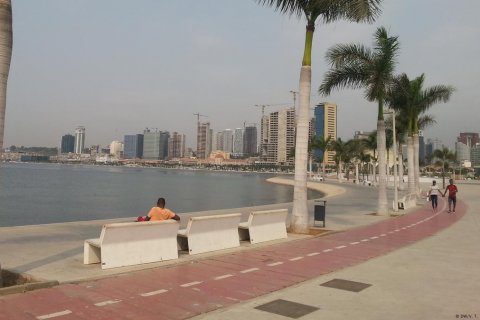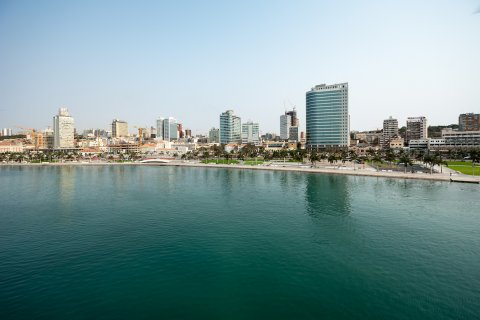In an interview with Lusa news agency, on the eve of the Summit of Heads of State and Government of the Community of Portuguese Speaking Countries (CPLP), to be held in Luanda, Angola, on Friday and Saturday, and in which an agreement on mobility within the community is to be signed, Augusto Santos Silva also considered that the document has been drafted in such a way that there are "no major obstacles" to its operationalization.
"I don't see any major obstacles in the operationalization of the agreement, because it is very flexible, it is a kind of framework of possibilities, and now each member state chooses those that are of its interest to develop or that it can develop," he said.
In the case of Portugal, it will "explore, in the sense of materializing, as soon as possible, the framework of possibilities that the agreement gives in terms of national visas and residence permits," said the Portuguese Foreign Minister.
Santos Silva said that Portugal will not be able to use the possibilities that the agreement offers in terms of short-stay visas, tourism visas, because, in relation to these, it is subject to European legislation.
However, for national visas it is the national legislation that counts, therefore, he said: "Everything that the CPLP mobility agreement allows us to do in terms of national visas and residence permits, we intend to do.
For the minister, this agreement "will mean greater ease, fewer bureaucratic or administrative constraints for students, workers, businessmen, researchers, journalists, and other professions, for which movement between CPLP countries will be easier.
With this agreement, for example, a student from a Portuguese-speaking country who wants to study in Portugal "just has to show that he or she is not a threat to Portuguese national security, that he or she is behaving in a clean criminal way and that he or she is not a threat, for example, from the point of view of health or public order.
However, "each member state will use the possibilities opened up by the agreement in accordance with its interests or its other international responsibilities and also, in a (transitory) period of five years, with the speed with which it wants to implement the agreement," he explained.
The document is considered by many CPLP officials as a step that can give CPLP citizens a greater sense of belonging to the community.
For the minister, the feeling of belonging already exists. And it is "on the perception side, the feelings, the culture and even the way of life, the shared values.
"That side is perhaps the one where the community is strongest," he said. "If I can summon my quality as a professional sociologist here, I see that belonging in absolutely essential dimensions of personal and collective life," such as language.
"That alone changes everything." Then, "there is also a belonging that stems from another incredible strength of the CPLP, the fact that values of a humanistic nature are unquestionable in the community," the ruler continued.
"The third element of belonging, which is very important, is the way we live as ours the values of others, the successes of others, the achievements of others, the icons of each other," he said, exemplifying that "just look at how the President of Portugal is received in any country of the CPLP."
As for the next step that the community is expected to take, with Angola at the head of the CPLP, the strengthening of economic relations, Santos Silva believes it will be achieved despite the asymmetries between the countries.
"I don't want to argue with economists, since I am a professor at the fallowing, but I would like to draw attention to the fact that the differences from the economic point of view between Portugal and Germany are many, between Bulgaria and France are even greater. And that doesn't exempt us from even operating under rules that go much further than economic cooperation, because we even operate in a single market," he said, referring to the European Union.
In a balance of the 25 years that the CPLP celebrates on the 17th, the minister said that "the first great result" of the organization is the fact that "it exists. And "an unmistakable proof of the importance and international recognition of the CPLP is the number and nature of associated observers it has and candidates" in growing.
So much so, that "forced the CPLP to review the regulation of associated observers," a document that is not yet completed and therefore will not go to the summit, he said.
This "is one of the best arguments I know against the tired and ignorant thesis of the irrelevance of the CPLP," concluded Santos Silva.
Angola, Brazil, Cape Verde, Guinea-Bissau, Equatorial Guinea, Mozambique, Portugal, Sao Tome and Principe and Timor-Leste are the nine member states of the CPLP.







